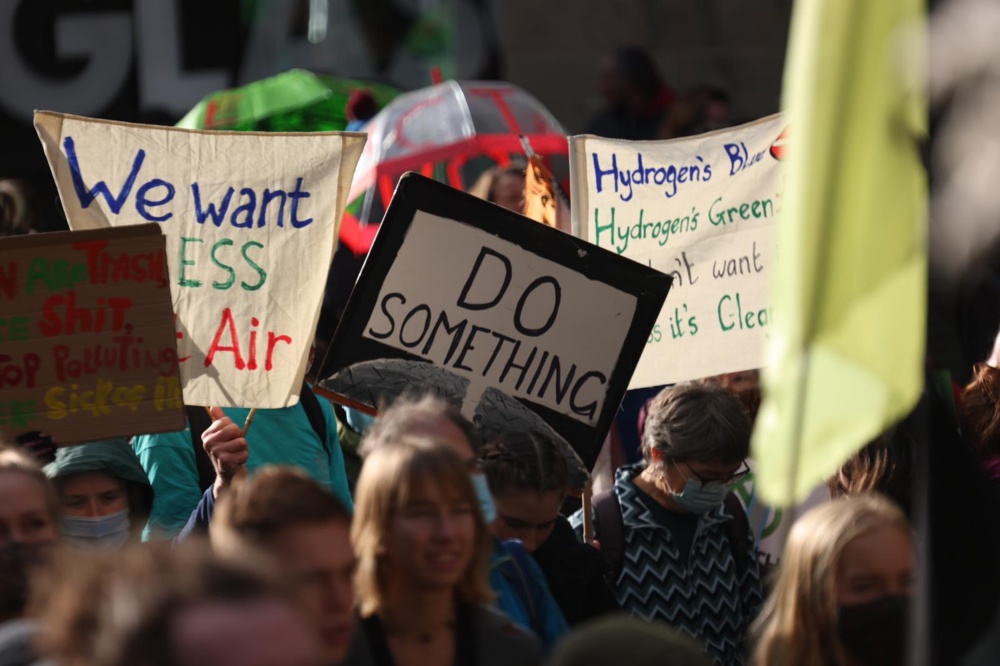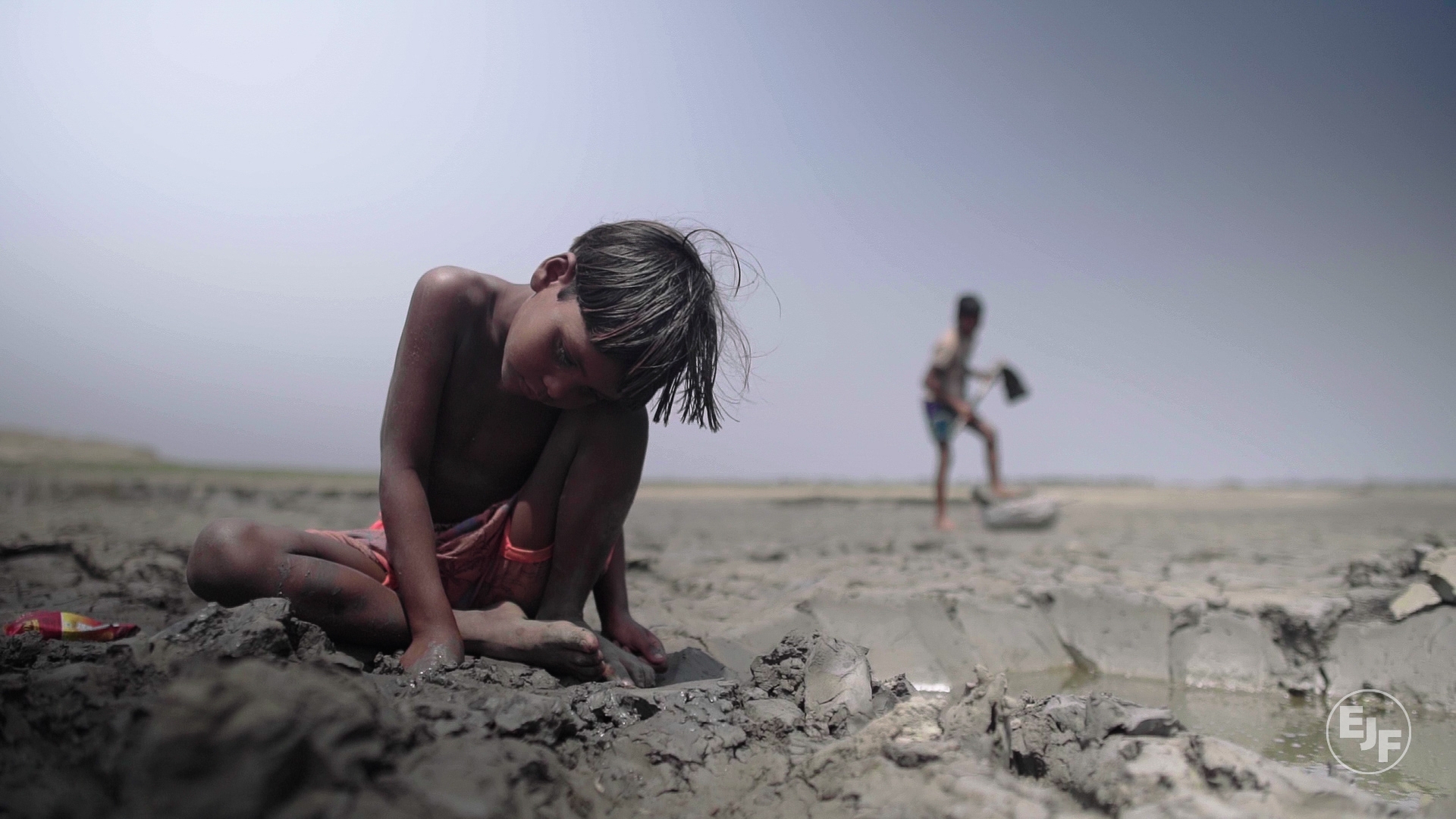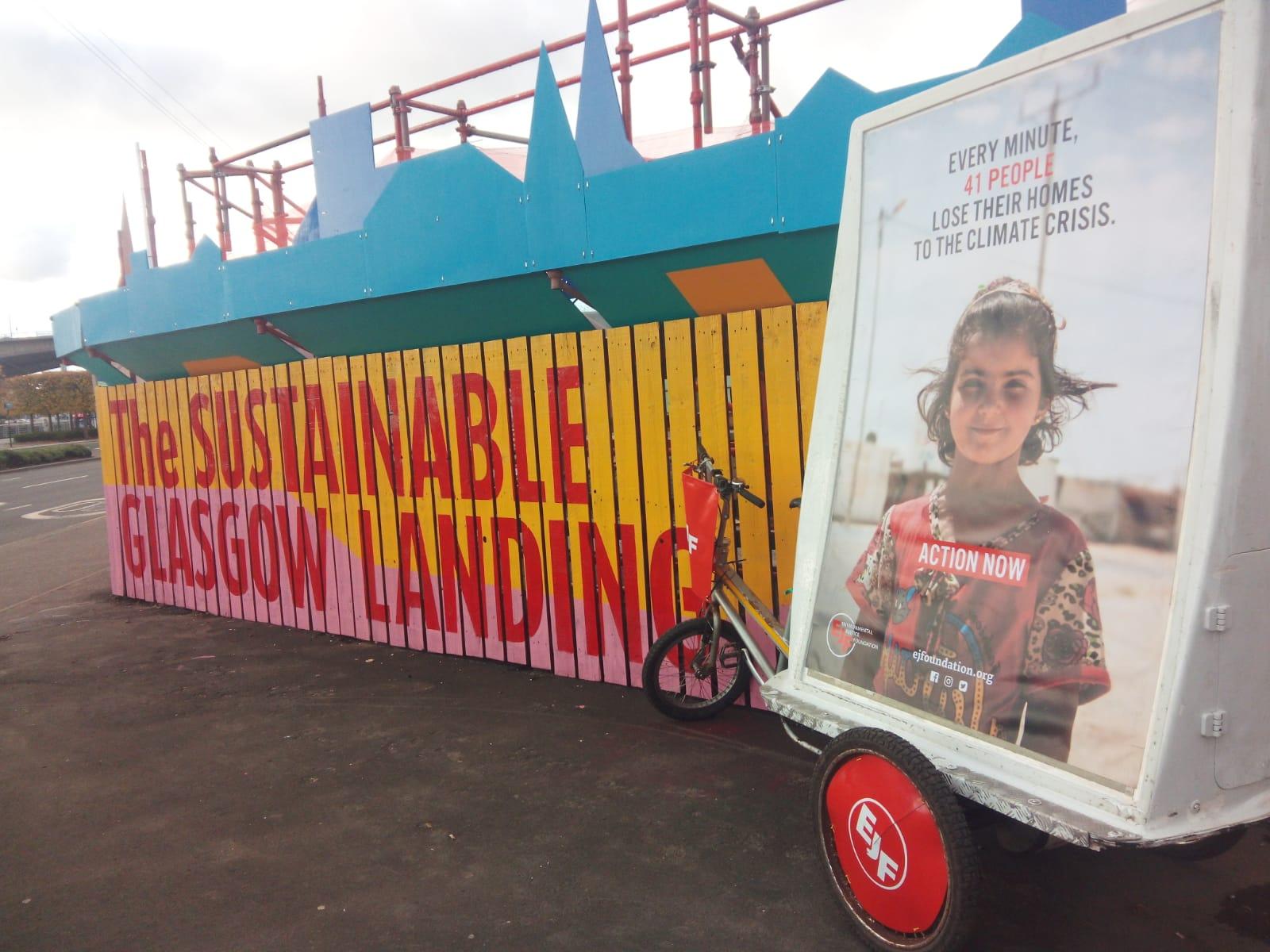
Shut out and silenced at COP26
COP26, promoted as being the moment when humanity could come together to tackle climate breakdown, is shaping up to be one of the least inclusive COPs to date. Civil societies, activists from developing nations, and even those with disabilities are all struggling to even enter the zone where discussions are taking place, let alone the actual negotiations. In fact, the only people who seem to be sitting comfortably with a seat at the table are leaders from developed nations – essentially, all the voices we have already heard.
Billionaires and fossil fuel companies are represented in force, but those people actually affected by climate breakdown are left outside on the other side of the fence. This exclusionary environment is where the decisions about the future of our planet are being made, and it is not good enough.
Rose Kobusinge, a young activist from Uganda, has made it to COP but still feels like she is being disregarded, said: “It’s as if it’s a secret mission behind closed doors, and I don’t think that’s inclusion. That’s total exclusion.”
Urgent action. Now.
So what are the voices on the outside calling for? Drastic climate action, now.
“If you're capable of doing more, do it. Do it now. Don't even question about it. If you're thinking that there's an easy way out of it, there isn't,” said Jeremy Raguain, Seychelles Islands Foundation. “If you think it can't be done by yourself, step out of the ways for somebody else who thinks they can do it.”
Veronica ‘Derek’ Cabe from the Nuclear/Coal-Free Bataan Movement in the Philippines, added: “You have all the resources, you have all the power, you have all the knowledge... But where is your conscience? When you have all those things and you still choose to ignore everything, you still choose to ignore all the sufferings. You still choose to ignore all the pleadings of the of the people like us, of the countries like us.”
The climate crisis is a universal, existential threat to humanity. While communities being impacted first and worst are often the poorest, most marginalised and most vulnerable, global heating will affect us all. Derek said: “Now it is on us. But sooner, sooner than later, it will be on every one of us. This climate crisis is going to devastate all of us.” A ‘whole of government’ and ‘whole of economy' approach is needed, including communities on the front line of the climate crisis.
Climate devastation
Somehow, the people who are already being severely impacted by climate breakdown are the ones without a voice at COP26 – the people who can tell us what is in store if we don’t commit to action are not being given a seat at the table, or even access to the surrounding area.
Disha Ravi, youth climate activist from India, said: ‘These freak weather events are just weather events. They are because of the climate crisis… and they're getting more frequent than ever before.”
Disha continued: “People who live much more within the city have had their ground water levels go down. They haven't had access to water and end up having to buy water from the municipality [of Bangalore] … it's weird that it's [water] a commodity that people have to pay for when it's essentially a basic human right.”
Injustice
The climate crisis is a human rights crisis. The people and countries that have historically contributed the least to greenhouse gas emissions and benefited the least from carbon-fueled economic growth, are those suffering first and worst from the impacts of global heating. And these are the people excluded from the negotiations. As Chantel Comardelle, Tribal Executive Secretary of the Isle de Jean Charles band of Biloxi-Chitimacha-Choctaw Tribe, USA, said: “It's important that we give the community members a real voice at the table and not just a seat at the table.” At COP26, many communities don’t even have a seat.
Jeremy continued: “Climate change is a symptom of this global inequality, where the richest, the biggest polluters are not only responsible, but they're the most insulated. They're the ones who are going to able to adapt to this. Whereas us on the frontlines, who have contributed least, we have the least adaptive capacity. So there's no greater inequality there… we'll be forced out of our homes. Our livelihoods will be destroyed, our futures will be stolen. And those who are most responsible will get away with it.”
Disha added: “Somehow white men in suits get to sit there and debate who lives and who dies. And it's appalling because they have no idea what's it like to experience the climate crisis, and they probably never will. They think 1.5°C is ambitious when it's the bare minimum.”
Hope
The actions we take over the next 5-10 years will determine our human experience and the impact on our planet for the next 50,000 - 100,000 years. We already have the solutions. What we need now is the political will to implement the transformation to protect people and the planet, and truly inclusive negotiations where all voices have the chance to be heard. The Environmental Justice Foundation has had the great honour of being able to support six climate activists with bursaries for their costs for attending COP. These young people from around the world, from Uganda to Papua New Guinea are exactly who we need to put us on the road to a sustainable, just future. They must be heard.
“I believe that we have to stay hopeful… staying hopeful is one of the only ways I find the strength to keep fighting.” – Tonny Nowshin, Bangladeshi climate activist and academic.
This piece was originally published by The Ecologist and is reposted here with permission
SIGN UP FOR OUR EMAILS AND STAY UP TO DATE WITH EJF

